Maria Veliman
Ina Bachmann
Kristin Cerutti
Sarah Wooldridge
Brandon Pike
Fluid Retail: Experiential Entertainment
As retail continues to rapidly transform, we’re looking beyond the immediate industry, to environments and concepts inspiring the retail of tomorrow in our latest Fluid Retail series. Today’s consumers engage with brands in a fluid manner. The traditional sectors of the retail, restaurant, hospitality, and entertainment have blurred as the consumer-desired experience has become a mosaic of expectations, influenced heavily by engagement, access, and authenticity. Embracing these new expectations presents brands with a greater opportunity to differentiate, cross-sell and expand the breadth of their brand experience.
This segment will focus on entertainment concepts—from brand name skate parks, to experiential beauty studios, that have adapted to new consumer behaviors, paving the way for new experiences of the future (and while you’re here, check out other our other segments: Hospitality & Wellness and Food + Beverage):
RazerStore
Global gaming brands Razer has unveiled its first European flagship, a 3,700-square-foot space dedicated to interactive experiences. The distinctly dark two-floor space features a shop floor, play-test area where consumers can try out any combination of Razer’s gear, and lower ground floor gaming zone, complete with an enclosed streaming booth, connected consoles and ten battle stations. There will also be weekly tournaments, workshops, and boot camps in the future.
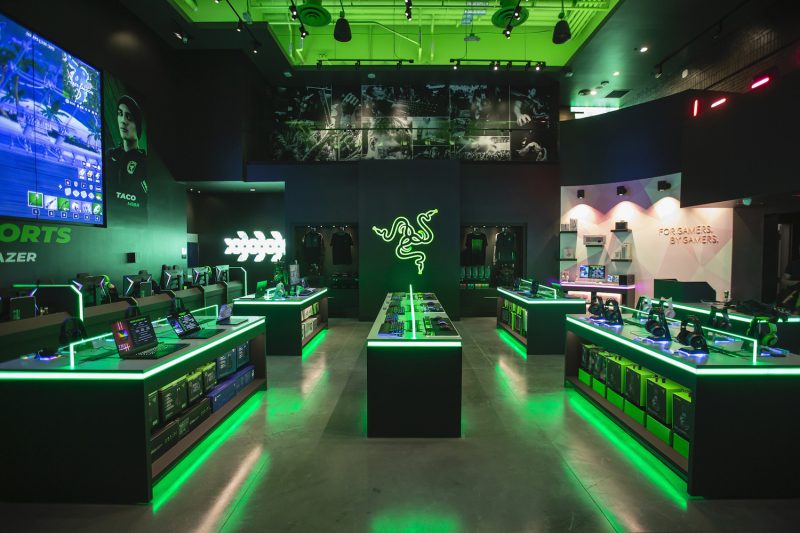
RazerStore, London, UK
Vans Skate Space
Vans Skate Space 198 was designed to offer a unique skate experience both beginner and experience boarders. As consumers flock to brand sponsored spaces, Vans hopes that the space will host competitions, art exhibits and music events in the future.
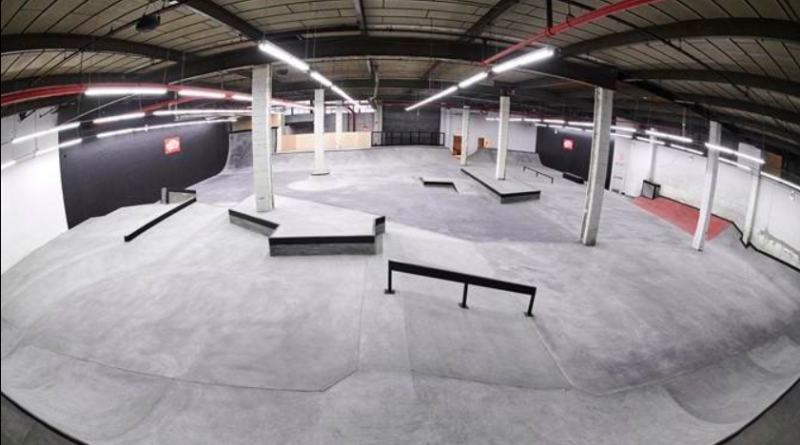
Vans Skate Space, Brooklyn, NYC
CAMP Flagship
Built to engage and inspire young families CAMP’s newest flagship location in Hudson Yards NYC has a canteen, an interactive space for play and shopping, and a theater for activities and programming for kids. Different from other CAMP stores that operate with rotating themes, this signature store features the brand’s BaseCAMP theme, bringing families the nostalgia of New England summer camps no matter the time of year.
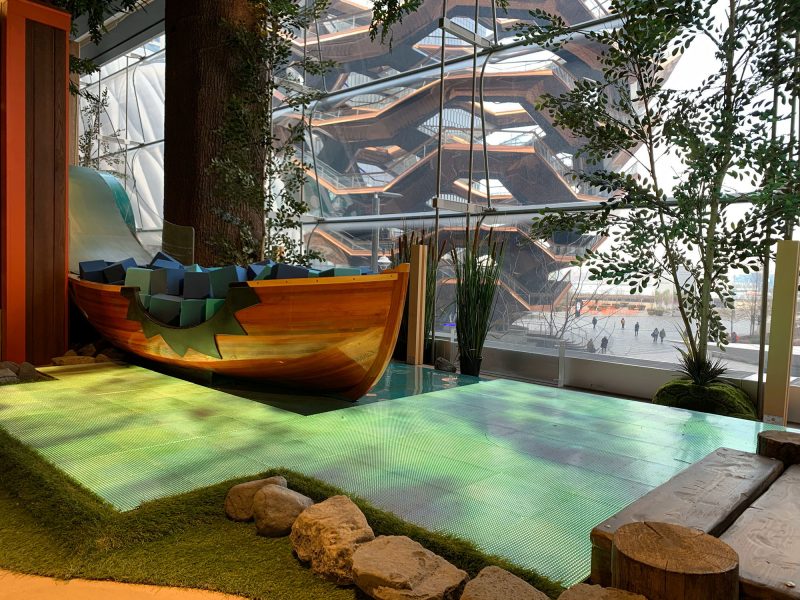
CAMP, Hudson Yards NYC
Zalando
European fashion e-retailer Zalando opened a Berlin Beauty Station to act as a multi-use store that doubles as an interactive art gallery, salon, or photography studio. Showcasing IRL tutorials and producing educational content for in-store tablets or online streaming, the store offers fans beauty focused entertainment experiences.
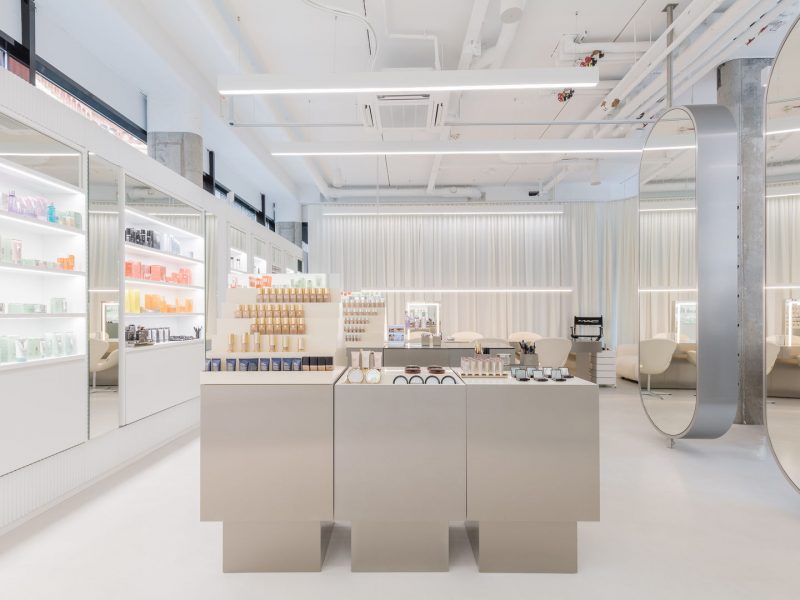
Zalando Beauty Studio, Berlin, Germany
Off-White Miami Flagship
Fashion designer and streetwear icon Virgil Abloh has redesigned Off-White brand’s Miami flagship to flex into a multipurpose event and fulfilment center when not in regular retail mode. The space’s new design navigates the challenges of reimaging the physical brand space as the popularity of e-commerce, accelerated by the pandemic, grows.
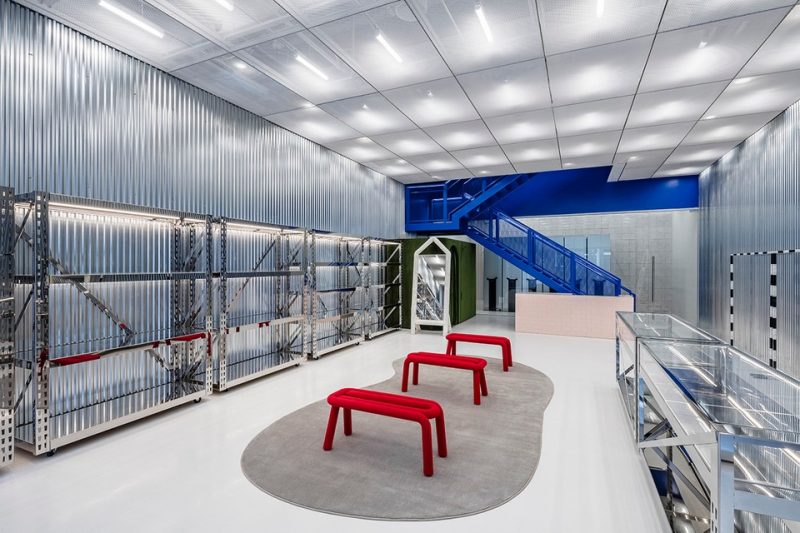
Off-White Flagship, Miami, FL
Ferrara Candy Company Innovation Center
Dorsey & Whitney
Greenberg Traurig
Augmenting the Design Process with AI: Embracing the Human Touch
There has been a profound transformation with the integration of Artificial Intelligence [AI] as an exciting tool in architectural design processes. AI-driven tools and technologies have revolutionized data analytics, personalized customer and employee experiences, concepting, collaboration, and productivity.
While the integration of AI into our professional and personal lives continues to quickly evolve, its broad reach is an intriguing and exciting support tool used to augment – not replace – human creativity. The human touch, intuition, and artistic vision remain integral to the design process, and AI acts as an enabler, providing designers, and architects with valuable insights and efficiency-enhancing capabilities to push the boundaries of their creativity further.
Combining Human Ingenuity with the Power of Artificial Intelligence
AI-driven tools and technologies offer a wide range of capabilities that can significantly inspire, enhance, and optimize creativity for designers and architects.
Enhancing Creativity and Innovation: AI’s role in the design process is to assist and amplify human creativity, not stifle it. By analyzing vast datasets and generating insights, AI can provide designers and architects with predictive analysis that is invaluable when applied to the overall creative process, enabling designers to push the boundaries of innovative experience design.
Empowering Human-Centric Design: AI-driven data analysis empowers teams to craft personalized spaces and experiences tailored to individual customers or target demographics. This collaboration between AI’s data-driven recommendations and human design ensures a seamless understanding of customer behavior and preferences, ensuring experiences that enhance user collaboration, journey, productivity, and efficiency.
Sustainability and Wellness: By analyzing climate data, building performance simulations, and occupant wellbeing and comfort, AI-powered algorithms help optimize for energy efficiency, daylighting, thermal comfort, spatial layouts, furniture arrangements, and color schemes that reduce environmental impact and promote the overall health, comfort, and happiness of the end users.
Iterative Design Refinement: AI’s rapid data processing capabilities enable the analysis of multiple design iterations quickly. This accelerates the design process, allowing designers to test various concepts, layouts, and ideas. As teams receive real-time feedback, they can make decisions informed by data and refine designs iteratively, ultimately leading to more effective spaces and experiences.
A Delicate Balance
The powerful integration of AI and the human touch marks a transformative milestone in the evolution of technology and its impact on society. Through collaborative efforts, we are witnessing the emergence of a new era where AI augments human capabilities, allowing us to tackle complex challenges with greater efficiency and precision while pushing the boundaries of our innate creativity.
As we continue to embrace this synergy, it is essential to remember that the heart of progress lies in maintaining a delicate balance between the potential of AI and the irreplaceable essence of human empathy and creativity. By harnessing the best of both worlds, we can shape a future where technology empowers us to achieve unparalleled heights of innovation while preserving the core values that makes us uniquely human.